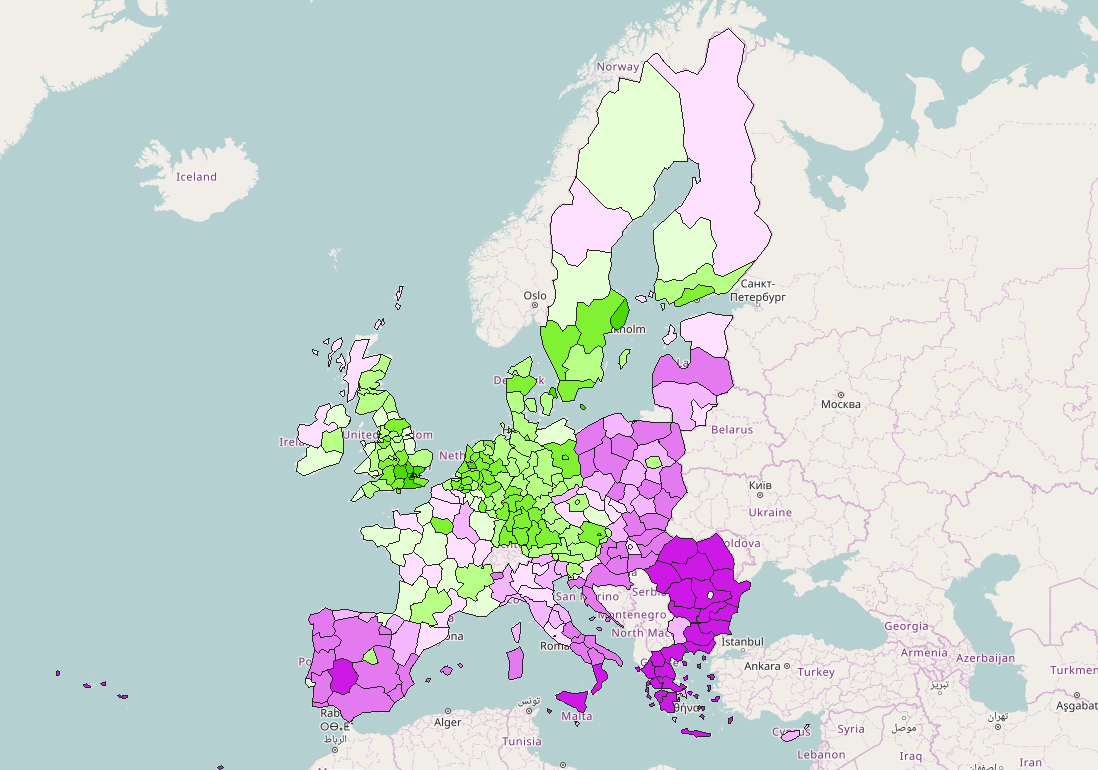Thessaloniki gets ready for its metro launch in November
The underground rapid transit lines have been under construction for almost two decades due to various project delays
 TheMayor.EU logo
TheMayor.EU logo Explore the latest edition of EU regional competitiveness data
Are you looking for the right place in Europe to start up a new business? Are you willing to exploit existing working opportunities or are just curious about how your region is doing in terms of competitiveness? If the answer is yes, then the European Union has the right tool for you.
For more than a decade now the Regional Competitiveness Index (or RCI), has been measuring and tracking the progress of the competitiveness of the regions in Europe. With a sound methodology relying on 70+ indicators, the 2019 index clearly shows the ability of EU regions to offer an attractive and sustainable environment for firms and residents.
As the 2019 edition of the Index has been launched earlier this week, we are able to tell which amongst 268 regions in 28 member countries are doing best. As it turns out, these continue to be the capital and metropolitan regions. Capital regions tend to be the best performing in their countries, with the exceptions of the Netherlands, Italy and Germany, where Utrecht, Lombardy and Oberbayern (Munich) show the highest score, respectively.
 Regional divides, according to RCI 2019, Copyright OpenStreetMap, OpenLayers, REGIOgis
Regional divides, according to RCI 2019, Copyright OpenStreetMap, OpenLayers, REGIOgis
With wide-ranging variations observed within the same country, it is interesting to discover whether the gap between capital regions and the rest of the country tends to get narrower or if in other words, countries move towards more balanced development and cohesion.
When it comes to the four high-flyers (France, Sweden, Romania and Czechia), their capital regions have remained leaders for the four editions of the index (in 2010, 2013, 2016 and 2019). But if followers are slowly chasing Ile-de-France and Stockholm regions, the gap remains wide among Bucharest region and Praha and the remaining Romanian and Czech regions.
Of course, it is great to discover the winners, which this year are Stockholm, Utrecht and London regions. It is also particularly informative to know that the worst-performers are five Greek regions, one Romanian, one Bulgarian and the Melilla autonomous city (Spain) on the North coast of Africa, as well as the French outermost regions of Mayotte and Guyane.
Be that as it may, there is a lot more to the index than the latest data. If you want to know more about the regional EU competitiveness data, feel free to dive into it by yourself – discover individual regional scores, compare between regions, explore their evolution over time or why not even predict future trends?
The Regional Competitiveness Index is released by Policy Development and Economic Analysis Unit of the Directorate-General for Regional and Urban Policy with the EU.

The underground rapid transit lines have been under construction for almost two decades due to various project delays

Now you can get your wine in Talence by paying directly in Bitcoin

That’s because the state has to spend money on updating the railway infrastructure rather than subsidizing the cost of the popular pass

Rethinking renewable energy sources for the urban landscape

The examples, compiled by Beyond Fossil Fuels, can inform and inspire communities and entrepreneurs that still feel trepidation at the prospect of energy transition

Now you can get your wine in Talence by paying directly in Bitcoin

The 10th European Conference on Sustainable Cities and Towns (ESCT) sets the stage for stronger cooperation between the EU, national and local level to fast track Europe's transition to climate neutrality.

At least, that’s the promise made by the mayor of Paris, Anne Hidalgo

The underground rapid transit lines have been under construction for almost two decades due to various project delays

At least, that’s the promise made by the mayor of Paris, Anne Hidalgo

Hostal de Pinós is located in the geographical centre of the autonomous region

Despite its church-y name, the district has long been known as the hangout spot for the artsy crowds

Urban dwellers across the EU are having a say in making their surroundings friendlier to people and the environment.

Forests in the EU can help green the European construction industry and bolster a continent-wide push for architectural improvements.

Apply by 10 November and do your part for the transformation of European public spaces

An interview with the Mayor of a Polish city that seeks to reinvent itself

An interview with the newly elected ICLEI President and Mayor of Malmö

A conversation with the Mayor of Lisbon about the spirit and dimensions of innovation present in the Portuguese capital














